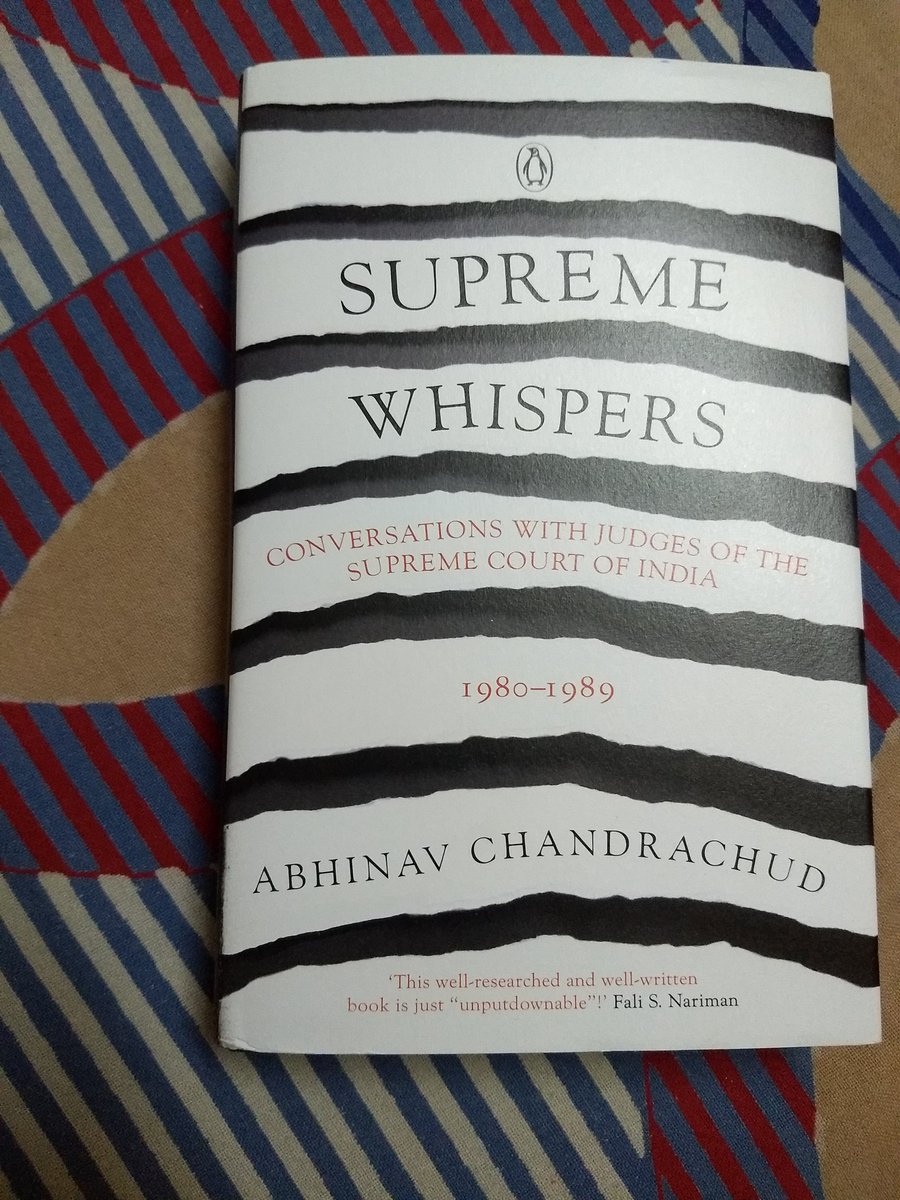A few connections to be made here.......? Anyway, going ahead with the book.
I found from some wikipedia research that this is the same person whom Indira Gandhi made CJI by superseding 4 other senior judges.
We now know who that son is.
Justice Pathak said that thee were three distinct groups in the court. First, the British style legalists, second, the centrists. The third, these were the judges who considered themselves to be lawmakers.
He also described himself as a 'complete misfit' at the Supreme Court in the 1980s.
Justice AP Sen thought that public interest litigation would ruin the supreme court, and make it a parallel government.
He warned the judges against playing to the gallery and giving speeches to various audiences.
"One judge was critical of Justice Krishna Iyer for citing too many American sources".
The more things change, the more they stay the same.
Isn't that natural? How can you out-english the english in an english legal system?


